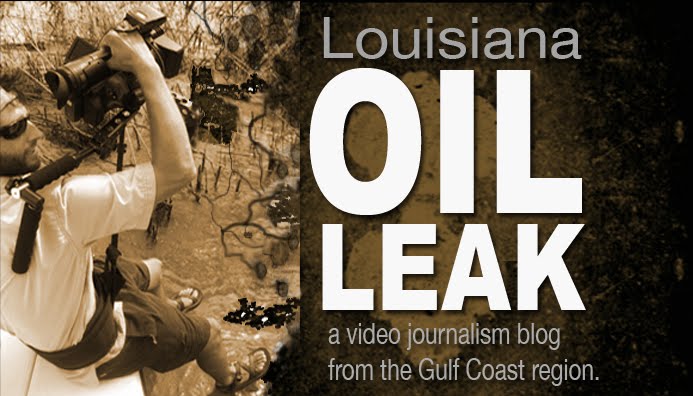I got home at 10:30 pm last night from an evening fishing trip with a friend, Mr. Jerry Alfonso. Mr. Jerry is a 77 year old Isleño who grew up at Delacroix Island. His unending knowledge of the waters and the wildlife of that area always makes for quite a fishing trip.
We filled an icechest full of black drum, redfish, and trout and if not for the loss of daylight, we would have filled another. The trip was a good way for me to appreciate the environment that I am fighting to protect and to reflect on the work I have done so far.
Tuesday, Wednesday, and Thursday of last week I filmed the National Wildlife Federation's work in Venice, LA.
On Tuesday, we visited a pelican rookery in the northern area of Barataria Bay. The island had indeed been hit by dispersed oil. The area was some 80 miles from the site of the leak and was much too close to Louisiana's shoreline for comfort. This was very disturbing, but the majority of the pelicans on the island seemed to be unaffected for now.
Wednesday was a heart-breaker. Our original goal was to get as close to the Deepwater Horizon site as possible. Because of bad weather offshore, we detoured to a western area of the Gulf of Mexico. About 12 miles from the mouth of the Mississippi River we found a large slick of black crude oil. This was not the dispersed oil that I had seen on my last trip with NWF. This stuff was nasty and it could be seen for miles in every direction. Even more disturbing was the fact that this oil was sprayed with dispersant that same night and was dispersed throughout the water column the next day. The quick action may have had something to do with President Obama's visit on Friday.
The danger and long term effects of the dispersants are still unkwnown. The Coast Guard claims that crude oil is 50 to 100 times more toxic than the dispersant. I am not a scientist and there have been no complete studies released on this, so I don't know if this is true. I do know that it does take the crude oil, which sits primarily at the surface, and spreads it throughout the entire water column. If there were more effective methods for skimming the oil off the surface, it would make a lot of sense not to use these dispersant. Why have these methods have not been developed if we are going to drill 5,000 feet below the sea for crude oil ? -- no one seems to know.
As this leak goes on, my personal philosophies about many things have changed. I've begun to think about the oil spill and the overall loss of coastal wetlands in a different light. I am now calling these disasters an attack on American soil and everyday that the oil leaks and every 30 minutes that we lose wetlands is a defeat. If our country, our Congress, and our Commander in Chief begin to think this way, I would surely hope they would act to defend us.
Sunday, May 30, 2010
Subscribe to:
Post Comments (Atom)


This is a few days old now, but have you seen it? http://www.youtube.com/watch?v=GHmhxpQEGPo
ReplyDeleteRaises a lot of questions about the failure to develop better containment and cleanup technology...